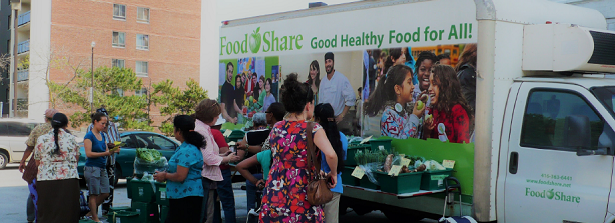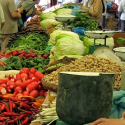RUAF policy brief “The Role of the Private Sector in City Region Food Systems”

Increased recognition of the role that food can play in responding to various urban sustainability concerns provides new market and engagement opportunities for the private sector. RUAF Foundation published a policy brief that reports on a recent study, implemented by RUAF and supported by the Food & Business Knowledge Platform and the CGIAR Water Land and Ecosystems Programme (WLE/IWMI), on the role of the private sector in building more sustainable and resilient city region food systems.
The policy brief of RUAF Foundation reports on their recent analysis report “The Role of the Private Sector in City Region Food Systems”. Private sector players can fulfil an important role in speeding up and implementing scalable urban food system innovations. Because of their large consumer markets, more direct consumer relations, and close collaboration between various players in the food supply chain, city regions offer traditional and new private sector players some unique opportunities.
The policy brief gives insights in the international agendas, private sector engagement and policy support, with illustrations from three cities: Quito, Ecuador; Bristol, UK; and Rotterdam, The Netherlands. The policy brief highlights six policy pointers:
- To feed growing cities in a sustainable way, both public and private actors need to speed up design and implementation of innovative food system strategies at a city region scale.
- Business opportunities exist in traditional food services (production, processing, retail), and increasingly also in resource recycling, development of new products and services, and technological innovations.
- Small and medium-sized enterprises (SMEs) seem to have the highest potential for supplying city region markets and providing or sourcing city region products, while at the same time ensuring local job creation and social inclusion.
- Local small-scale farmers and SMEs need to be supported in adopting specific business strategies to be competitive, through product aggregation, sharing of infrastructure and resources, pooling of consumer demand, and/or integration of their products into mainstream distribution channels.
- Interventions and policy instruments by governments and the larger and international private sector can vary from direct technical and financial support to creating favourable business environments in the city region. Local/regional sourcing and procurement possess potential for support.
- The greatest impact is achieved when a food system approach is advocated and support is provided to the entire network of city region producers, wholesalers, processors, caterers and shopkeepers. Integration with other sectors (logistics, recycling, urban planning) and various innovations in food production and marketing will drive the biggest change.
Background information
Visit the website of RUAF Foundation to access more background information, the full study report and three city region reports.
Direct links






